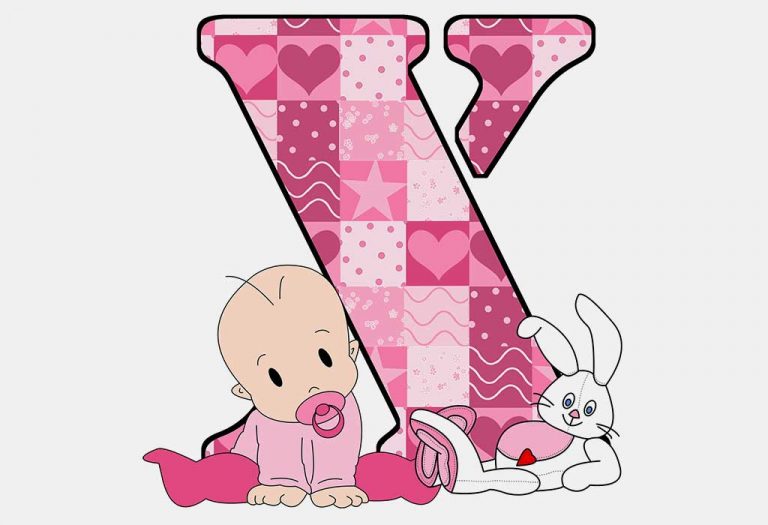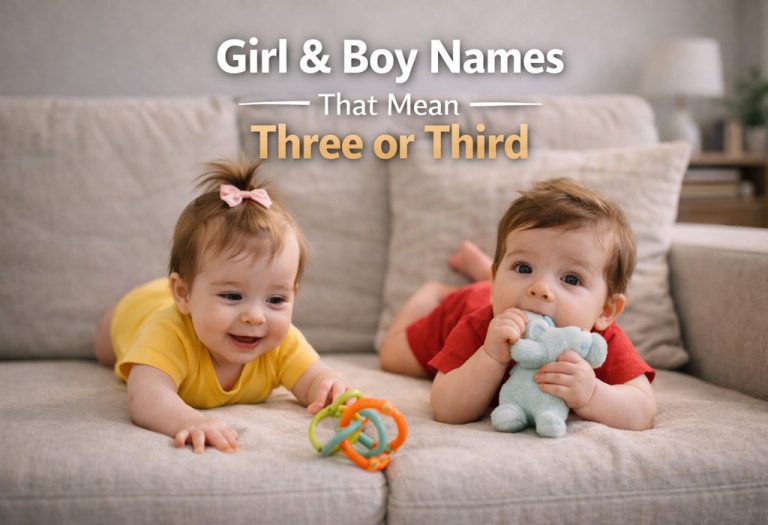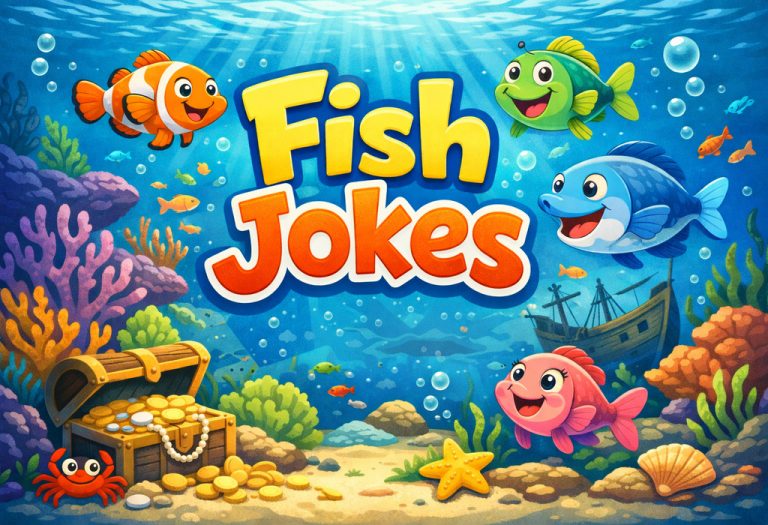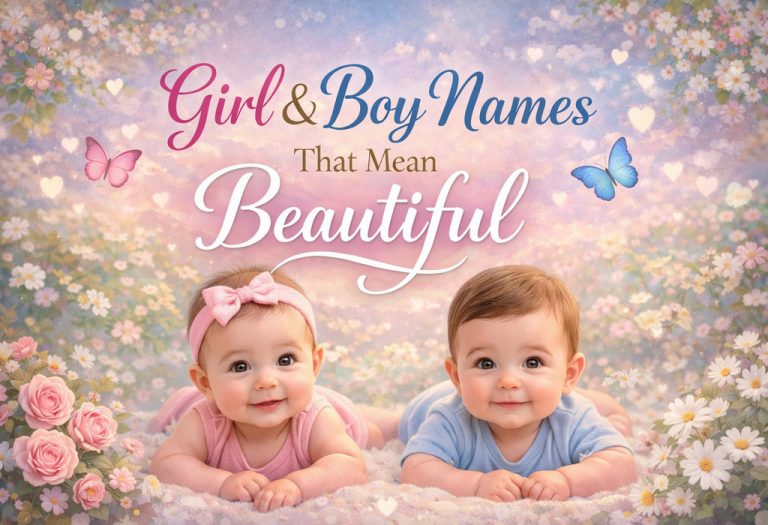250+ Surnames or Last Names That Start With F (With Meanings)
- Common Last Names That Start With F
- Unique Surnames Beginning With F
- Irish Last Names Starting With F
- English Last Names That Begin With F
- German Last Names Starting With F
- Spanish and Mexican Surnames Begin With F
- Japanese Last Name Beginning With F
- Haitian Surnames Beginning With F
- Why You Should Choose Surnames Starting With F?
- FAQs
There’s something fascinating about how a simple letter can connect centuries of family history. Think of the letter F — firm, familiar, and full of character. Many surnames that start with F trace back to medieval Europe, carrying stories of tradesmen, warriors, poets, and farmers. When we explore a last name that starts with F, we’re really peeking into generations of identity and tradition. Whether you’re researching your ancestry, naming a fictional character, or simply curious about language, these F last names reveal how deeply culture and geography shape who we are.
Common Last Names That Start With F
Surnames beginning with the letter F often sound familiar, warm, and deeply rooted in culture. Many of these names have ancient origins tied to professions, landscapes, or personal traits. Below is a list of some of the most common last names that start with F.
- Fauner – Means “falcon trainer”; an English occupational name for someone who trained hunting birds for nobility.
- Fletcher – Refers to an “arrow maker”; derived from medieval English craftsmanship vital in archery.
- Fisher – Means “one who catches fish”; symbolising patience, livelihood, and connection to nature.
- Foder – Derived from Old English, meaning “a shallow river crossing” or “near the river crossing.”
- Foster – Comes from the Old French “forster,” meaning “keeper of the forest” or “guardian.”
- Franklin – Means “free landowner”; once given to independent property holders in medieval England.
- Flyen – Of Irish origin, meaning “descendant of Flann,” or “reddish-haired person.”
- Fields – Refers to someone “who lived by open fields,” representing simplicity and rural life.
- Fresot – Derived from Old English, meaning “cold” or “frosty”; often given to someone with white hair.
- Finher – Means “songbird”; once used as a nickname for lively, cheerful, or expressive individuals.
- Ferguson – A Scottish and Irish surname meaning “son of Fergus,” or “man of strength.”
- Forbes – Of Scottish origin; refers to “a field” or “district,” often associated with noble clans.
- Famer – Means “one who works the land”; symbolising diligence, stability, and tradition.
- Fulren – Occupational surname for “cloth worker”; someone who cleaned and thickened wool in textile making.
- French – Used for people “from France” or of “French descent”; reflects migration and cultural identity.
- Faure – French origin meaning “blacksmith”; represents craftsmanship and strong working roots.
- Fairild – Means “beautiful child” or “innocent one”; symbol of purity and goodness.
- Farrar – Comes from Latin ferrarius, meaning “iron worker” or “smith.”
- Farley – English origin meaning “fern clearing” or “meadow of ferns.”
- Fenden – Refers to “marsh town” or “settlement near a swamp”; derived from Old English.
- Ferris – Irish and English name meaning “rock” or “iron strong.”
- Fenday – Scottish and Gaelic name meaning “fair-haired hero” or “blond warrior.”
- Fitzgerald – Irish surname meaning “son of Gerald,” often linked to noble Norman families.
- Floyd – Welsh name meaning “grey-haired” or “grey tone,” symbolising wisdom and maturity.
- Forbeson – Means “son of Forbes,” carrying the legacy of the Scottish Forbes clan.
- Forster – Variant of Foster, meaning “keeper of the forest” or “forest guardian.”
- Fazer – Latin origin meaning “craftsman” or “smith”; once given to skilled artisans.
- Firth – Refers to someone living “by an estuary or inlet of the sea.”
- Flannwan – Irish origin meaning “descendant of Flann,” or “ruddy-faced person.”
- Fontade – French surname meaning “fountain” or “spring,” symbolising freshness and purity.
- Foreman – Occupational name for “overseer” or “supervisor,” reflecting leadership in trade or labour.
- Frostman – Derived from “Frost,” used for families living in cold or northern regions.
- Fernworth – English place name meaning “enclosure among ferns” or “fern-covered meadow.”
- Fahey – Irish surname meaning “green” or “victorious,” linked to ancient Gaelic roots.
- Ferraro – Italian origin meaning “blacksmith” or “worker in iron,” common in southern Europe.
Unique Surnames Beginning With F
Surnames that begin with the letter F often carry a sense of character and mystery. These unique names reflect families who stood apart through their work, culture, or the lands they came from.
- Fabri – Latin origin meaning “craftsman” or “builder,” often linked to ancient Roman families of skilled artisans.
- Falco – Italian surname meaning “falcon,” symbolising vision, speed, and independence.
- Fane – Of English origin, meaning “glad” or “joyful,” once used for cheerful or kind-hearted families.
- Farnol – Old English name meaning “fern hill,” describing families living near green and wooded slopes.
- Fazio – Italian origin meaning “peaceful one,” known for its melodic and graceful sound.
- Feeney – Irish surname derived from Ó Fiannaidh, meaning “warrior” or “soldier.”
- Fevre – French name meaning “blacksmith,” representing craftsmanship and strength of hands.
- Fidalgo – Portuguese name meaning “nobleman” or “son of someone important.”
- Fiori – Italian surname meaning “flowers,” symbolising nature, creativity, and beauty.
- Fife – Scottish name derived from an ancient kingdom in Scotland, representing pride and history.
- Filippi – Italian variation of “Philip,” meaning “lover of horses” or “friend of animals.”
- Firthwell – Rare English surname meaning “stream near the estuary” or “water from the firth.”
- Fiorenzo – Italian origin meaning “blossoming” or “flourishing,” a name of elegance and vitality.
- Faberly – Derived from Latin “faber,” meaning “craft worker” or “artisan,” with a gentle old charm.
- Follen – English surname meaning “leafy hill” or “surrounded by greenery.”
- Fontanelle – French origin meaning “small spring” or “little fountain,” symbolising purity and calm.
- Forthan – Anglo-Scottish surname meaning “riverbank dweller” or “living by a crossing.”
- Fortino – Italian origin meaning “little fortress” or “strong home.”
- Fradage – Spanish and Portuguese name meaning “rocky place” or “cliff,” often used for families near hills.
- Franchi – Italian surname meaning “free man” or “independent one,” symbolising liberty and strength.
- Fray – English name meaning “battle” or “struggle,” often associated with bravery and endurance.
- Freyre – Portuguese surname meaning “friar” or “brother,” referring to monastic roots.
- Fresco – Italian name meaning “fresh” or “lively,” used for vibrant and spirited families.
- Freudenberg – German origin meaning “joyful mountain” or “hill of happiness.”
- Friberg – Scandinavian name meaning “free mountain” or “peaceful highland.”
- Frith – Old English origin meaning “peace” or “protection,” often linked to guardians or wise people.
- Fronda – Spanish name meaning “leafy branch” or “shade of trees.”
- Furlani – Italian surname referring to a family from Friuli, a region in northeastern Italy.
- Fusco – Italian name meaning “dark-haired” or “dusky,” once describing physical appearance.
- Fynes – English surname meaning “fine” or “delicate,” used for refined or noble families.
- Faneuil – French origin meaning “small temple” or “little sanctuary,” linked to families of heritage.
- Felan – Irish name meaning “little wolf,” symbolising courage and loyalty.
- Follain – French name meaning “mischievous” or “spirited,” given to lively individuals.
- Franza – Italian surname meaning “from France” or “French-born,” showing cultural ties across borders.
- Freyson – Scandinavian origin meaning “son of Frey,” referring to the Norse god of prosperity.
Irish Last Names Starting With F
Irish surnames starting with F carry warmth, pride, and deep roots in Gaelic culture. Here are some beautiful and meaningful Irish last names that begin with F.
- Flynn – Means “descendant of Flann,” referring to someone with a ruddy or fair complexion.
- Flanagan – Comes from “Ó Flannagáin,” meaning “descendant of the red one” or “ruddy-faced.”
- Fagan – Derived from “Ó Faodhagáin,” meaning “little fire,” symbolising energy and warmth.
- Farrell – From “Ó Fearghail,” meaning “man of valour” or “courageous one.”
- Finnegan – Means “fair” or “white,” from “Ó Fionnagáin,” often used for families with fair hair.
- Fitzpatrick – Norman-Irish name meaning “son of Patrick,” symbolising faith and heritage.
- Fitzsimmons – Means “son of Simon,” a blend of Norman and Irish lineage.
- Fitzroy – Translates to “son of the king,” once used for royal descendants.
- Flaherty – From “Ó Flaithearta,” meaning “bright” or “princely,” often linked to noble families.
- Fogarty – Derived from “Ó Fogartaigh,” meaning “exiled” or “banished,” representing resilience and endurance.
- Finley – Gaelic name meaning “fair-haired warrior” or “blond hero.”
- Foley – Comes from “Ó Foghladha,” meaning “plunderer,” describing brave warriors in battle.
- Fahy – From “Ó Fathaigh,” meaning “descendant of the wise man” or “scholar.”
- Fedeey – Derived from “Ó Fiannaidh,” meaning “warrior” or “brave soldier.”
- Fitzmaurice – Means “son of Maurice,” from old Anglo-Norman Irish heritage.
- Forde – Irish origin meaning “river crossing” or “dweller near the ford.”
- Furlong – Derived from Old Irish “Fuar Long,” meaning “cold ship,” tied to seafaring families.
- Flinn – Variant of Flynn, meaning “descendant of Flann,” referring to someone with fair skin.
- Finnerty – Comes from “Ó Finnachta,” meaning “fair snow” or “white beauty.”
- Finucane – Derived from “Ó Fionnmhacháin,” meaning “fair” or “handsome.”
- Flavin – From “Ó Flaithimhín,” meaning “little prince” or “noble one.”
- Fitzgibbon – Means “son of Gibbon,” another Irish Norman hybrid surname.
- Finneran – Derived from “Ó Finnéarain,” meaning “fair” or “blessed.”
- Fitzharris – Anglo-Irish name meaning “son of Harris,” found in Munster and Leinster.
- Fitzhenry – Means “son of Henry,” representing families of Norman descent in Ireland.
- Finn – Gaelic name from “Fionn,” meaning “fair” or “bright.”
- Flannelly – From “Ó Flainn Fhionnlaoich,” meaning “descendant of Flann of the hero.”
- Fitzwalter – Means “son of Walter,” reflecting early Norman settlement in Ireland.
- Friel – Derived from “Ó Frighil,” meaning “valiant man” or “strong one.”
- Furey – Comes from “Ó Fiodhabhra,” meaning “descendant of the man of wood.”
- Fitzwilliam – Means “son of William,” tied to noble Irish-Norman families.
- Fennell – Irish origin meaning “little fair one,” often associated with Munster counties.
- Foy – From “Ó Fiaich,” meaning “descendant of the raven,” symbolising wisdom and vision.
- Frawley – Derived from “Ó Froighile,” meaning “descendant of Froghil,” possibly linked to a leader or warrior.
- Fitzsimons – Variant of Fitzsimmons, meaning “son of Simon,” used in medieval Ireland.
English Last Names That Begin With F
English surnames that begin with F often come from trades, landscapes, or personal traits passed through generations. Many of these names were first used in small villages and towns, inspired by simple daily life and nature. They reflect strength, honesty, and connection to the land. Here’s a list of meaningful English last names starting with F, each with its own gentle story.
- Faulkner – Means “falcon keeper,” given to those who trained or cared for hunting birds.
- Flehcer – Derived from “arrow maker,” describing craftsmen who supplied arrows for medieval archers.
- Farmer – Means “land worker,” a name that honours those who cultivated and cared for the earth.
- Ford – Refers to someone who lived near a shallow river crossing or waterway.
- Frost – Given to a person with white hair or a cool temperament, inspired by winter frost.
- Fielding – Means “open land dweller,” used for people living near fields or meadows.
- Finch – Comes from the bird “finch,” symbolising liveliness and cheerful nature.
- Fuller – Refers to someone who cleaned and thickened woollen cloth during textile production.
- Fordean – Occupational name for an “overseer” or “head worker” in trades or farming.
- Freeman – Means “free man,” describing someone who was not a serf or under feudal control.
- Fairchild – Means “beautiful child,” once used as a term of endearment or affection.
- Ferrers – Comes from the Latin “ferrarius,” meaning “iron worker” or “blacksmith.”
- Ferdh – Refers to someone living by a “sea inlet” or “coastal bay.”
- Field – Simple English name for those who lived near open countryside or farmland.
- Forester – Given to those who worked or lived in forests, caring for trees and wildlife.
- Farrow – Means “pig keeper,” referring to someone who raised livestock in rural areas.
- Fleetwood – From a place name meaning “stream by the woods” or “swift waters.”
- Fairfax – Means “fair-haired,” used for light-haired families of noble or gentle background.
- Fenton – Locational name for “marsh town” or “settlement near a swamp.”
- Farnham – Means “homestead near ferns,” reflecting lush countryside origins.
- Frampton – Comes from a place name meaning “farm near the river Frome.”
- Fincham – Refers to “homestead of finches,” from Old English for people near bird meadows.
- Farnsworth – Means “enclosure of ferns,” describing families from green, wooded places.
- Fairbairn – Means “pretty child” or “handsome boy,” used affectionately in medieval England.
- Fellows – Derived from Old English for “partner” or “companion,” symbolising friendship and loyalty.
- Fish – Occupational name for a fisherman or one who sells fish in markets.
- Fairclough – Means “beautiful valley,” often used for families near scenic landscapes.
- Foxwell – Refers to someone who lived near a spring or well where foxes were seen.
- Flagg – Means “dweller near marshland” or “flagstone plain,” a simple and earthy name.
- Fleet – Describes someone living near a “creek” or “tidal stream.”
- Frobisher – Old English surname for a “polisher of metal” or “refiner.”
- Fossey – Derived from “fosse,” meaning “ditch” or “trench,” for those near moats or embankments.
- Fulcher – From Old English meaning “people’s defender” or “protector of the folk.”
- Faweyan – Means “joyful” or “glad,” symbolising a cheerful or kind-hearted person.
- Fairweather – Given to someone with a pleasant nature or associated with mild weather conditions.
German Last Names Starting With F
German surnames that start with F often reflect professions, traits, or places connected to early families across Germany. Many of these names carry meanings tied to nature, craftsmanship, or personal qualities admired in communities. They have a strong yet graceful tone that mirrors the country’s deep cultural heritage. Here’s a list of unique and meaningful German last names beginning with F.
- Fischer – Means “fisherman,” given to those who made a living from rivers and lakes.
- Frank – Refers to someone “free” or from the Frankish people, symbolising liberty and pride.
- Friedrich – Means “peaceful ruler,” a name once held by noble and respected families.
- Fuchs – German for “fox,” often describing someone clever or with reddish hair.
- Faust – Means “fist,” symbolising strength and determination, famously used in German literature.
- Falk – Derived from “falcon,” used for those known for vision and sharpness.
- Faber – Latin-rooted surname meaning “craftsman” or “smith,” linked to skilled tradesmen.
- Feist – Means “sturdy” or “strong,” describing someone with a solid build or energy.
- Frick – Swiss-German name meaning “peaceful ruler,” or derived from short forms of Friedrich.
- Fink – Means “finch,” used for cheerful or lively individuals.
- Faberle – Diminutive of Faber, meaning “little craftsman” or “artisan.”
- Frey – Means “free,” used for those not bound by feudal rule, showing independence.
- Fritsch – Derived from Friedrich, meaning “peaceful leader,” common in southern Germany.
- Fröhlich – Means “cheerful” or “happy,” given to joyful or optimistic families.
- Fechner – Occupational name for “tanner” or “hide worker,” from old craft traditions.
- Förster – Means “forester,” used for those who cared for woods and wildlife.
- Fleischmann – Means “butcher” or “meat man,” an important trade in German villages.
- Frantz – Variant of Franz, meaning “free man,” often found in southern regions.
- Faberlin – Refers to “small craftsman,” a gentle version of Faber from workshop roots.
- Fendel – Derived from “fennen,” meaning “to protect” or “defend.”
- Faulhaber – Means “lazy farmer,” originally a nickname, later used humorously for rural families.
- Feiler – Occupational name meaning “file maker” or “metal worker.”
- Freidel – Derived from “Fried,” meaning “peace,” given to kind or calm individuals.
- Fromm – Means “pious” or “devout,” reflecting deep religious faith.
- Fliegel – Means “wing,” possibly for someone lively or symbolic of freedom.
- Fendrich – Derived from “standard bearer” or “flag carrier” in military ranks.
- Fleischer – Means “butcher,” linked to families in the meat trade.
- Freund – Translates to “friend,” describing someone warm and trustworthy.
- Falkenstein – From “falcon stone,” likely a place name near rocky hills with falcons.
- Feuerstein – Means “flint stone,” used for families living near rocky or mineral-rich areas.
- Feldman – Means “field man,” describing a farmer or land worker.
- Fuchsberger – Refers to someone from a “fox hill” or “place of foxes.”
- Freederg – Means “hill of joy,” a cheerful name for those from a bright hillside.
- Fessel – Derived from “chain” or “link,” possibly used for metalworkers or blacksmiths.
- Falkenberg – Means “falcon mountain,” symbolising strength and freedom in nature.
Spanish and Mexican Surnames Begin With F
Spanish and Mexican surnames that start with F often have a lyrical sound and strong family heritage. Many of these names are tied to nature, faith, or regions across Spain and Latin America. They reflect warmth, resilience, and deep cultural pride. Each name below carries a story of lineage, love, and identity that continues to shine through generations.
- Fernandez – Means “son of Fernando,” symbolising courage and journey, one of the most common Spanish surnames.
- Flores – Means “flowers,” representing beauty, grace, and life blooming in every family generation.
- Franco – Refers to someone “free” or “independent,” also linked to the historical Frankish people.
- Fuentes – Means “fountain” or “spring,” used for families who lived near natural water sources.
- Figueroa – Comes from “fig tree,” symbolising abundance and connection to the land.
- Ferrer – Means “blacksmith,” given to those who worked with iron and metal.
- Fraga – Means “rocky place,” often used for families from hilly or stony regions.
- Fausto – Derived from Latin, meaning “fortunate” or “lucky,” common across Spain and Mexico.
- Feria – Refers to “fair” or “market,” used for families who traded or hosted fairs.
- Fajardo – Of Spanish origin, meaning “brave” or “noble,” often linked to military heritage.
- Ferrera – Means “iron worker” or “forge,” connected to families skilled in metalwork.
- Fonseca – Comes from Latin, meaning “dry spring,” a locational name from old villages.
- Frias – Refers to “cold place,” named after a mountain town in northern Spain.
- Florescano – Mexican surname derived from “Flores,” showing regional pride and family tradition.
- Farías – Means “descendant of Farias,” possibly linked to Arabic origins meaning “knight.”
- Fuentespina – Refers to “thorny spring,” often tied to a family’s ancestral village.
- Falcón – Means “falcon,” symbolising freedom, courage, and sharpness.
- Ferrán – Derived from “Fernando,” meaning “adventurous traveller” or “bold protector.”
- Forero – Means “traveller” or “messenger,” describing someone who moved across lands for trade.
- Ferrufino – Comes from Latin, meaning “iron-like,” used for strong and hardworking families.
- Figal – Means “fig tree grove,” representing fertility and connection to the earth.
- Fariña – Galician surname meaning “flour,” given to families who worked as millers or bakers.
- Fuentesal – Means “salt spring,” possibly referring to families near mineral-rich lands.
- Feliciano – Means “happy” or “fortunate,” reflecting positivity and joy.
- Fizaldo – Means “nobleman” or “son of something important,” from old Spanish nobility.
- Ferrando – Derived from “Fernando,” meaning “bold voyager,” used in both Spain and Mexico.
- Fajín – Spanish name meaning “belt maker,” tied to tailoring and traditional craftsmanship.
- Fresneda – Refers to “ash tree grove,” from regions covered in woodland.
- Falguera – Means “fern,” used for families from green mountainous areas.
- Ferreiro – Galician surname meaning “blacksmith,” common in northwest Spain.
- Fontanilla – Means “little fountain,” symbolic of purity and renewal.
- Falcónes – Variant of Falcón, meaning “falcons,” showing lineage of hunters or falconers.
- Figueredo – Derived from “fig tree field,” showing agricultural roots and abundance.
- Ferrón – Means “iron worker,” often passed down in families of strong trade backgrounds.
- Fortes – Means “strong” or “brave,” reflecting courage and endurance through generations.
Japanese Last Name Beginning With F
Japanese last names beginning with F often hold deep meanings connected to nature, geography, and family legacy. Many of them come from landscapes like rivers, mountains, and fields, showing how closely Japanese culture is tied to the environment. Each of these surnames carries a quiet strength, elegance, and sense of tradition passed down for generations.
- Fujimoto – Means “origin of the wisteria,” symbolising beauty, longevity, and harmony in family life.
- Fujiwara – Means “field of wisteria,” one of Japan’s oldest and most respected noble family names.
- Fukuda – Means “blessed rice field,” symbolising prosperity and gratitude for nature’s gifts.
- Fujii – Means “well of wisteria,” representing calmness, grace, and deep roots in heritage.
- Fukuyama – Means “fortunate mountain,” describing a family from the highlands with rich blessings.
- Fujita – Means “rice field of wisteria,” reflecting beauty and nourishment from the land.
- Fukui – Means “fortunate well,” often linked to good luck and abundance.
- Furukawa – Means “old river,” symbolising wisdom, patience, and connection to one’s past.
- Fujisaki – Means “wisteria blossom cape,” expressing elegance and the joy of springtime.
- Fukazawa – Means “deep valley,” representing strength, peace, and protection in nature.
- Fujikawa – Means “wisteria river,” a name connected to families near flowing water and beauty.
- Fujino – Means “field of wisteria,” representing families living near blooming purple vines.
- Furuya – Means “old valley house,” symbolising heritage, respect, and the passage of time.
- Furuta – Means “old rice field,” reflecting agricultural roots and a simple, humble way of life.
- Fukase – Means “deep river rapids,” symbolising energy and flow through life’s challenges.
- Fukagawa – Means “deep river,” used for families who lived near strong and wide streams.
- Fukushi – Means “fortunate samurai” or “lucky warrior,” showing honour and courage.
- Fuchigami – Means “edge of the pond,” often linked to families near water or gardens.
- Fujibayashi – Means “wisteria forest,” symbolising natural harmony and quiet beauty.
- Fukazume – Means “deep corner,” referring to families from secluded or peaceful areas.
- Fukuchi – Means “lucky land,” expressing prosperity and happiness.
- Fukumoto – Means “base of good fortune,” symbolising the root of success or blessings.
- Fujimura – Means “wisteria village,” describing families living near areas of wisteria growth.
- Furuno – Means “old field,” showing generational ties to rural or farming roots.
- Fukano – Means “prosperous field,” often associated with growth and abundance.
- Furuichi – Means “old market,” a name once used by merchant families.
- Fujishima – Means “island of wisteria,” symbolising grace and beauty surrounded by nature.
- Fukuma – Means “blessed truth,” representing honesty and moral clarity.
- Fukumori – Means “forest of fortune,” tied to prosperity and peace.
- Fukahori – Means “deep moat,” symbolising protection and security.
- Fukuno – Means “lucky field,” representing a family blessed with fertile land.
- Furuoka – Means “old hill,” linked to families from historic or elevated regions.
- Fukuhara – Means “field of fortune,” describing good harvests and happy homes.
- Fujimotozaki – Means “cape of wisteria origin,” showing beauty and deep family lineage.
- Furuichiya – Means “old marketplace house,” once used for merchant households in ancient towns.
Haitian Surnames Beginning With F
Haitian surnames beginning with F carry a beautiful mix of French, African, and Creole influences. Here’s a list of unique Haitian surnames starting with F, each simple yet meaningful in its own way.
- François – A common Haitian surname meaning “free man,” rooted in old French tradition.
- Fleurant – Means “flowering” or “blooming,” symbolising growth and beauty in family heritage.
- Fortin – Derived from “fort,” meaning “strong” or “little fortress,” showing resilience and courage.
- Felix – Means “fortunate” or “happy,” representing positivity and good spirit in Haitian families.
- Fontaine – Means “fountain” or “spring,” connected to purity and renewal.
- Fleurimond – Combines “flower” and “world,” meaning “flower of the world,” symbolising light and kindness.
- Ferdinand – Derived from old French, meaning “brave traveller” or “courageous adventurer.”
- Faustin – Means “fortunate one,” a name that reflects hope and divine blessing.
- Fils-Aimé – Literally means “beloved son,” a name filled with affection and family love.
- Francillon – Means “little Francis,” showing French roots and a sense of humility.
- Fleurima – Derived from “flower,” symbolising life, grace, and resilience.
- Forté – Means “strong” or “steady,” describing families known for perseverance.
- Fabius – Of Latin origin, meaning “bean grower,” brought to Haiti through European influence.
- Frédéric – Means “peaceful ruler,” a name tied to dignity and calm leadership.
- Fardin – Refers to “pure” or “sincere,” often linked to honesty and integrity.
- Filsdor – Means “son of gold,” representing pride, value, and treasured legacy.
- Fanel – Haitian Creole name meaning “bright” or “light,” symbolising joy and optimism.
- Fenelon – French origin meaning “little light” or “radiant one.”
- Fradez – Means “free man,” adapted from the German name Franz and widely used in Haiti.
- Fleurantine – Feminine form of Fleurant, meaning “blooming one” or “flowering beauty.”
- Fouchard – Comes from old French, meaning “brave” or “hardy.”
- Filsaime – Variation of Fils-Aimé, meaning “beloved son,” often used in rural Haiti.
- Frito – Derived from Creole meaning “peaceful” or “quiet-hearted.”
- Fonrose – Means “rose fountain,” symbolising beauty and grace.
- Fénelus – Haitian adaptation of a biblical name meaning “favoured by God.”
- Fombert – Refers to “humble origin,” a name showing modest beginnings.
- Faurelus – Combines strength and light, often used for noble families.
- Frédon – Derived from “Freed,” symbolising independence and hope.
- Ferville – Means “strong town” or “village of courage.”
- Fleuridor – Means “golden flower,” a poetic name for families of grace and warmth.
- Filsdefort – Translates to “son of strength,” reflecting courage and unity.
- Féron – French origin meaning “iron worker” or “smith,” showing craft and endurance.
- Faubert – Means “bright” or “radiant,” linked to energy and leadership.
- Filbert – Derived from “hazelnut,” symbolising prosperity and family growth.
- Fontaineau – Means “by the fountain,” representing serenity and connection to nature.
Why You Should Choose Surnames Starting With F?
Choosing a surname that begins with F has a quiet charm. These names often sound warm, familiar, and full of character. Many carry deep roots in history, linking to families known for creativity, strength, and kindness.
Surnames starting with F also have a pleasant rhythm when spoken, making them memorable and easy to recognise. Whether they come from English, Irish, French, or Japanese origins, they share a sense of individuality and meaning. From “Fisher” to “Fujimoto,” every F surname has a story behind it — of work, land, or spirit.
If you’re looking for a name that feels balanced, friendly, and timeless, surnames beginning with F offer a perfect mix of tradition and personality. They connect the past with the present in a way that feels real and rooted.
FAQs
1. What are some popular F surnames, and what do they mean?
Some well-known F surname examples include Fisher, Fletcher, and Foster. Each carries a story from old trades and places — Fisher for those who caught fish, Fletcher for arrow makers, and Foster for caretakers of forests. These names have lasted for centuries because they reflect the honest lives and work of early families.
2. Are there any Hispanic last names that begin with F?
Yes, several Hispanic last names start with F and have beautiful meanings. Names like Fernandez, Flores, and Figueroa are widely used across Spanish-speaking countries. They often symbolise strength, nature, or family heritage. These names connect generations through culture and language while still sounding graceful and modern.
3. How can I choose the right last name starting with F?
Choosing an F last name often depends on what you connect with most — history, sound, or meaning. Some prefer traditional options like Franklin or Fitzgerald, while others are drawn to unique ones like Faulkner or Fiorenza. The best choice is a name that feels natural to you and carries a sense of identity you can proudly share.
Choosing an F surname can feel both familiar and distinctive, connecting the past with the present in a meaningful way. In every culture, names beginning with F remind us that identity is more than letters — it’s history, heritage, and heart.
Also Read:
120 Last Names That Start With A
Last Names That Start With D
Surnames or Last Names That Start With ‘C’
Surnames or Last Names That Start With S
Was This Article Helpful?
Parenting is a huge responsibility, for you as a caregiver, but also for us as a parenting content platform. We understand that and take our responsibility of creating credible content seriously. FirstCry Parenting articles are written and published only after extensive research using factually sound references to deliver quality content that is accurate, validated by experts, and completely reliable. To understand how we go about creating content that is credible, read our editorial policy here.














.svg)


















